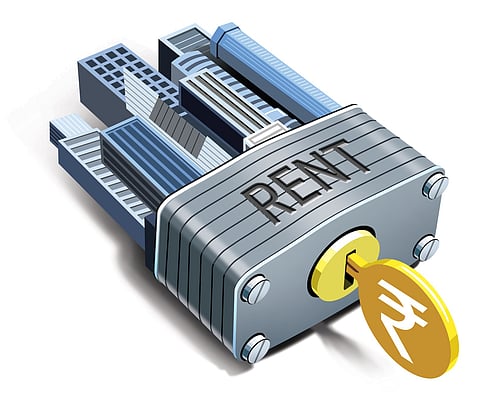

CHENNAI: If you are living in a rented house in a major city, chances are you may be forking out a decent sum every month. But it could increase further if the state government and your landlord decide to do so. For the first time in nearly 70 years, the Indian Rent Control Act has been revised with the government introducing a draft Model Tenancy Act, 2015 last October. The earlier Act dates back to 1948. Since land is a state subject, the new draft becomes an Act as and when individual state governments adopt the revised terms.
Rentals in India’s major cities have been in a disarray for sometime now. Though in cities like Mumbai, property prices have touched the roof, some landlords have been facing trouble to increase rent or evacuate long-time tenants. Moving rental courts and the consequent outcome takes forever. Landlords blame the archaic laws for preventing them from unlocking their property potential. Tenants feel rents are expensive and already market-determined, particularly, in prominent locations. Whatever the case, if the new Act comes into effect, here are key points that both landlords and tenants must be aware of.
Why rent matters?
Rent is a crucial component for both tenants and landlords. As per a National Sample Survey Organisation study, urban residents pay about 25-30% of their annual income towards rent. But tax deduction on house rent allowance is subject to a ceiling of 25% of annual income or Rs 5,000 per month, or whichever is less. Property owners too can claim tax rebate after a standard deduction of 30% from the net annual value (minus municipal taxes) and interest paid to banks on home loan, if any.
Current scenario
The Rent Control Act, 1948 is applicable only to tenancy of more than 12 months. It puts a cap on rent, which differs from state to state. For instance, in Tamil Nadu, rent cannot exceed 10 per cent of the standard or fair rate, while in united Andhra Pradesh it is 6 per cent. Standard rate is nothing but aggregate amount of construction cost and the market price of the land during construction. But, not many follow this and rentals in upstream residential locales are already at the peak and increase by about 10-15 per cent per annum. If you have been renting a place for over an year, your landlord cannot increase the rent unless specified in the agreement.
Types of tenancy agreements
Broadly two categories exist — Lease Agreement and Leave & License Agreement. The former is where agreements are of at least 12 months, while the latter grants the tenant a license to occupy the property for a period shorter than one year, like 11 months, with an option to renew the lease after expiry. Landlords prefer Leave & License because the current rent control laws seem skewed towards tenants. Moreover, the right to ownership of the property gets transferred from the landlords to the tenants in Lease Agreement. If the tenant refuses to vacate, a legal recourse is often a long-drawn process. A Leave & License Agreement allows landlords to take pre-emptive measures for eviction of the tenants.
How’s the new Act different?
The draft Model Tenancy Act 2015, allows landlords to charge market rate (which some have been at it ). So if your landlord thinks, your rent is not in sync with market value, expect a spike. But this cannot shoot up beyond 10% and only when the contract is up for renewal. The Act prevents landlords from taking beyond 3 months rent as security deposit. In metros, the norm is 6 months to 1 year and a house with Rs 15,000 rent means an outgo of a princely Rs 75,000-Rs 1,80,000.
Is the new Act good?
The law prevents landlords from overcharging tenants and protects from sudden and unfair eviction. Reasons to let out the property to someone else for a higher rent is not considered enough reason to seek eviction of the present tenant. The Act provides for compensation to the landlord, which is double of the monthly rent if the tenant refuses to vacate the premises after his tenancy has been terminated by order (notice of agreement).
Rent revision
Rent cannot be raised between the tenancy period, unless the amount of increase has been set out in the tenancy agreement expressly. A 10% rent hike after the expiry of the 11-month tenancy period, can be seen as hurting the tenant’s pocket. As per the draft, rent can be capped in consultation with the state government to avoid arbitrary hikes. Also, security deposit from the tenant will be capped at three times the monthly rent. Another plus point for tenants is they can claim a rent reduction if the quality of services deteriorates in any way.